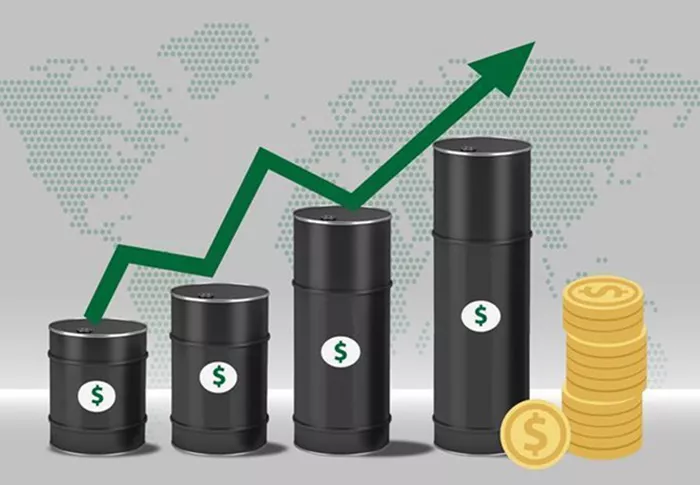Crude oil is a vital commodity in the global economy, serving as the primary source of energy for transportation, industry, and heating. Fluctuations in crude oil prices have significant economic, social, and geopolitical impacts. When crude oil prices increase, a cascade of effects ripples through various sectors. This article provides a comprehensive analysis of what happens when crude oil prices rise, exploring the immediate and long-term consequences on the economy, businesses, consumers, and global markets.
Economic Impact of Rising Crude Oil Prices
Inflationary Pressures
Increased Production Costs
Manufacturing and Industry: Rising oil prices lead to higher production costs for goods that rely on oil-based inputs, such as plastics, chemicals, and fertilizers. These increased costs are often passed on to consumers, contributing to inflation.
Transportation: Higher fuel prices result in increased transportation costs for goods and services. This can lead to higher prices for a wide range of products, from groceries to electronics.
Consumer Price Index (CPI)
Direct Effects: Higher oil prices directly impact the cost of goods and services, contributing to a rise in the CPI. As the cost of essential goods and services increases, inflationary pressures can lead to a decrease in consumers’ purchasing power.
Economic Growth and Recession Risks
Impact on Economic Growth
Cost of Living: Increased fuel and transportation costs can reduce disposable income for consumers, leading to lower consumer spending and potentially slower economic growth.
Business Investment: Higher operating costs can impact business profitability, leading to reduced investment in expansion and hiring.
Recession Risks
Consumer Behavior: Higher energy costs can lead to decreased consumer spending on non-essential items, potentially contributing to an economic slowdown.
Corporate Profits: Businesses facing higher operational costs may experience reduced profit margins, which can impact stock market performance and economic stability.
See also: What Happens When Crude Oil Goes Negative?
Impact on Businesses
Energy-Intensive Industries
Oil and Gas Sector
Increased Revenues: Oil producers and companies in the oil and gas sector benefit from higher prices, leading to increased revenues and potential profits.
Investment Opportunities: Higher oil prices can incentivize investment in exploration, drilling, and production.
Transportation and Logistics
Increased Operating Costs: Airlines, shipping companies, and trucking firms face higher fuel costs, which can impact their bottom line. These companies may pass on higher costs to consumers through increased fares or shipping fees.
Consumer Goods and Services
Retail Sector
Higher Prices: Retailers may increase prices for goods to offset higher transportation and production costs. This can lead to reduced consumer spending and altered shopping behaviors.
Supply Chain Disruptions: Increased oil prices can cause disruptions in supply chains, leading to potential shortages or delays in the availability of goods.
Agriculture
Input Costs: Farmers face higher costs for fuel and fertilizers, which can lead to increased prices for agricultural products. This may impact food prices and food security.
Impact on Consumers
Cost of Living
Energy Bills
Heating and Cooling Costs: Higher oil prices lead to increased costs for heating and cooling, particularly in regions that rely on oil for energy.
Vehicle Fuel Costs: Consumers face higher costs at the pump, which can affect transportation budgets and overall household expenses.
Purchasing Power
Reduced Disposable Income: As energy costs rise, consumers may have less disposable income for non-essential purchases, potentially impacting their overall quality of life.
Behavioral Changes
Shifts in Spending
Decreased Spending on Non-Essentials: Consumers may cut back on discretionary spending to manage higher energy costs, affecting retail and leisure industries.
Increased Demand for Fuel-Efficient Vehicles: Rising fuel prices may drive consumer demand for more fuel-efficient or alternative energy vehicles.
Adoption of Energy-Saving Measures
Home Improvements: Higher energy costs can prompt consumers to invest in energy-saving home improvements, such as better insulation or energy-efficient appliances.
See also: What Will Happen When Crude Oil Runs Out?
Global Market and Geopolitical Effects
International Trade
Trade Balances
Oil-Importing Countries: Countries that rely on oil imports face a worsening trade balance as they spend more on energy imports, potentially impacting their currency and economic stability.
Oil-Exporting Countries: Oil-exporting countries benefit from increased revenues, which can bolster their economies and provide opportunities for investment and development.
Currency Fluctuations
Exchange Rates: Changes in oil prices can influence exchange rates, with oil-importing countries potentially experiencing currency depreciation, while oil-exporting countries may see their currencies appreciate.
Geopolitical Tensions
Political and Economic Stability
Oil-Dependent Economies: Rising oil prices can impact the political and economic stability of oil-dependent countries, potentially leading to social unrest or changes in government policy.
Global Relations: Geopolitical tensions related to oil supply and production can affect international relations and global security.
Energy Security
Strategic Interests: Countries may focus on securing energy resources and diversifying energy sources to mitigate the impact of rising oil prices on their economies and national security.
Long-Term Trends and Future Outlook
Renewable Energy Transition
Investment in Alternatives
Green Energy: Rising oil prices can accelerate investment in renewable energy sources and technologies, such as solar, wind, and electric vehicles, as countries and businesses seek to reduce reliance on fossil fuels.
Policy Changes
Government Initiatives: Higher oil prices may lead to increased government support for energy-efficient technologies and policies aimed at reducing carbon emissions and promoting sustainable energy practices.
Technological Advancements
Innovation
Energy Efficiency: Advancements in technology can improve energy efficiency and reduce the impact of rising oil prices on businesses and consumers.
Alternative Fuels: Development of alternative fuels and energy sources can provide more options for reducing dependency on oil.
Conclusion
When crude oil prices increase, the effects are widespread and multifaceted, impacting the global economy, businesses, consumers, and geopolitical dynamics. Higher oil prices lead to inflationary pressures, increased production and transportation costs, and shifts in consumer behavior. They also influence international trade, currency exchange rates, and geopolitical relations. Understanding these impacts is crucial for individuals, businesses, and policymakers to navigate the challenges and opportunities presented by fluctuating oil prices. By staying informed about market trends and exploring alternative energy solutions, stakeholders can better manage the consequences of rising crude oil prices and contribute to a more sustainable and resilient energy future.
Related Topics:

